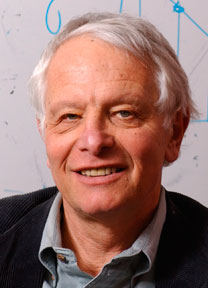This year, I have the distinct honor of chairing the committee to award the Franz Edelman Award, given out by INFORMS for the best work that “attests to the contributions of operations research and analytics in both the profit and non-profit sectors”. This competition has been incredibly inspiring to me throughout my career. Just this year, as a judge, I got to see extremely high-quality presentations on eradicating polio throughout the world, bringing high-speed internet to all of Australia, facilitating long kidney exchange chains, and more. I have seen dozens of presentations over my years as an Edelman enthusiast and judge, and I always leave with the same feeling: “Wow, I wish I had done that!”.
There is nothing that makes me more enthusiastic about the current state and future prospects of operations research than the Edelman awards. And, as a judge, I get to see all the work that doesn’t even make the finals, much of which is similarly inspiring. Operations Research is having a tremendous effect on the world, and the Edelman Prize papers are just the (very high quality) tip of the iceberg.
I was very pleased when the editors of Optima, the newsletter of the Optimization Society of INFORMS, the newsletter of the Mathematical Optimization Society, asked me to write about the relationship between optimization and the Edelman Prize. The result is in their current issue. In this issue, the editors published work by the 2013 winner of the Edelman, work on optimizing dike heights in the Netherlands, a fantastic piece of work that has saved the Netherlands billions in unneeded spending. My article appears on page 6. Here is one extract on why the Edelman is good for the world of optimization:
There are many reasons why those in optimization should be interested in, and should support, the Edelman award.
The first, and perhaps most important, is the visibility the Edelman competition gets within an organization. A traditional part of an Edelman presentation is a video of a company CEO extolling the benefits of the project. While, in many cases, the CEO has already known about the project, this provides a great opportunity to solidify his or her understanding of the role of optimization in the success of the company. With improved understanding comes willingness to further support optimization within the firm, which leads to more investment in the field, which is good for optimization. As a side note, I find it a personal treat to watch CEOs speak of optimization with enthusiasm: they may not truly understand what they mean when they say “lagrangian based constrained optimization” but they can make a very convincing case for it.
Despite the humorous tone, I do believe this is very important: our field needs to be known at the highest levels, and the Edelman assures this happens, at least for the finalists. And, as I make clear in the article: it is not just optimization. This is all of operations research.
There are dozens of great OR projects done each year that end up submitted to the Edelman Award. I suspect there are hundreds or thousands of equally great projects done each year that don’t choose to submit (it is only four pages!). I am hoping for a bumper crop of them to show up in the submissions this year. Due date is not until October, but putting together the first nomination would make a great summer project.



 AT&T Labs researcher
AT&T Labs researcher